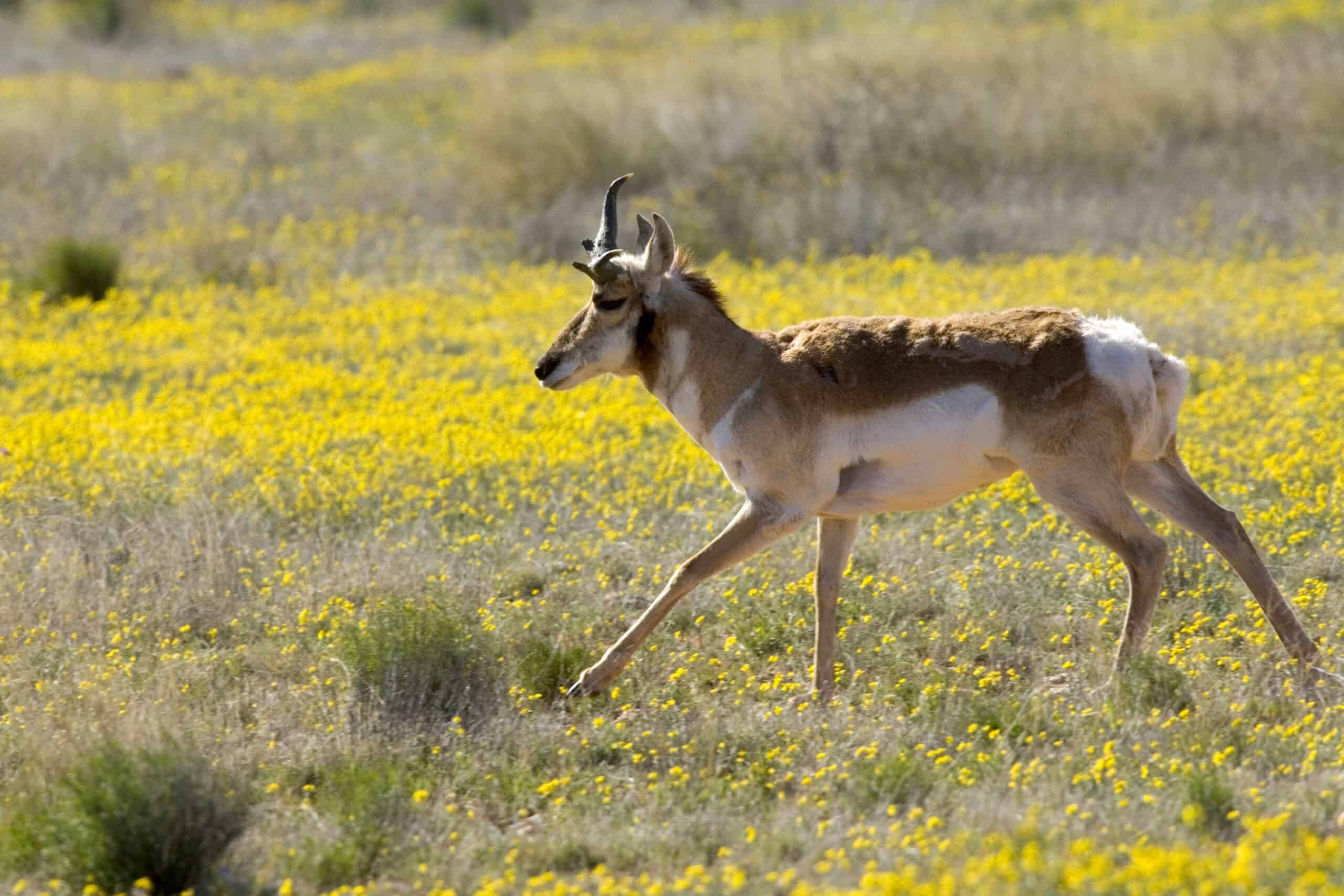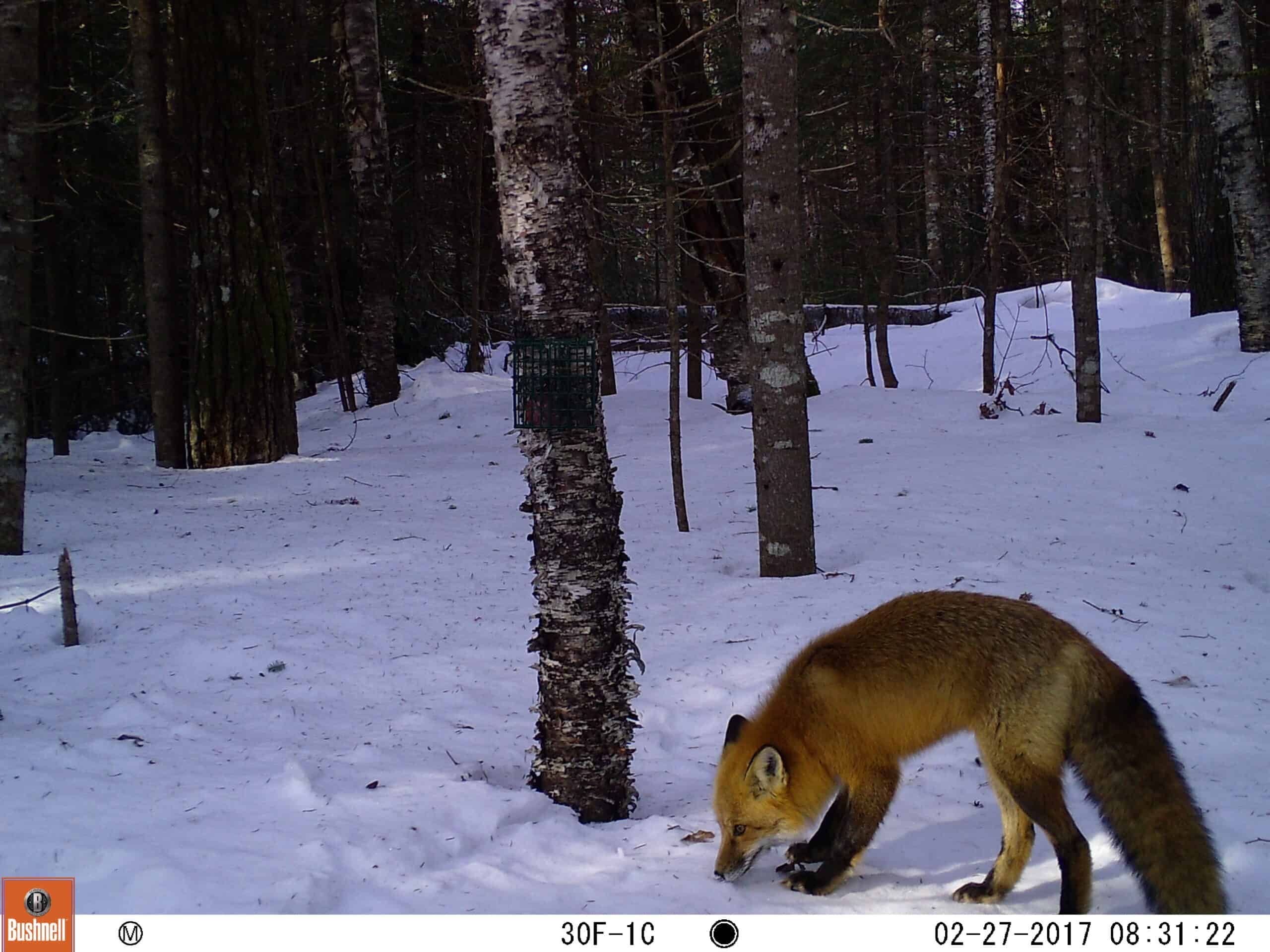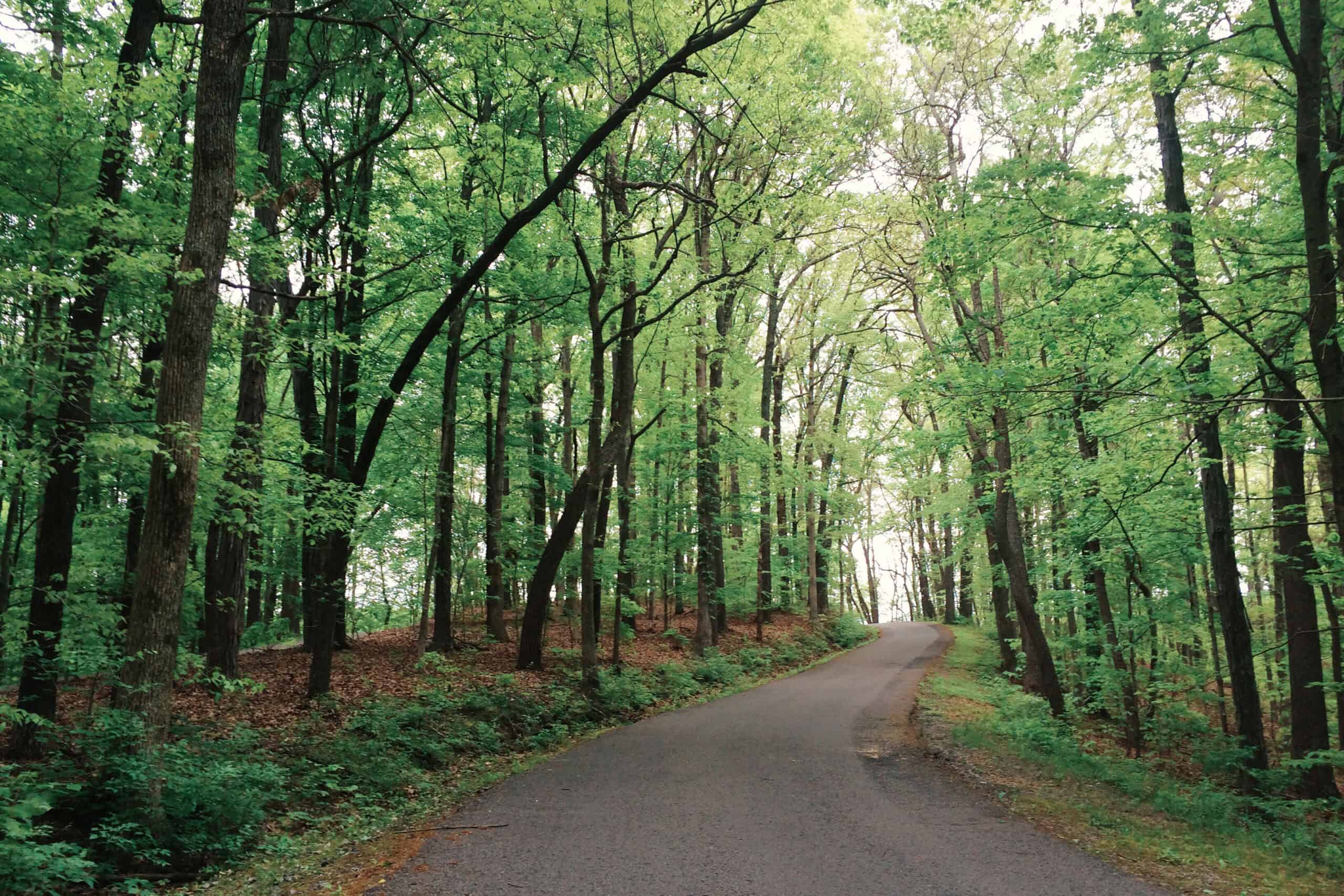Share this article
Elizabeth Flaherty wins Excellence in Wildlife Education Award
Elizabeth Flaherty makes one thing clear about the students taking her classes: They won’t often be passively sitting and listening to her lecture.
Flaherty, an associate professor of wildlife ecology and habitat management at Purdue University and TWS member, ensures that her students spend more of their time participating in activities and discussion. This boots-on-the-ground focus has earned Flaherty the 2021 Excellence in Wildlife Education Award.
“Dr. Flaherty is known for fostering student curiosity and interest in science and the field of wildlife ecology and management by providing students with an opportunity to construct and investigate their own questions using hands-on research and field experiences, while increasing students’ understanding of the nature of science,” said Robert Wagner, professor and head of the Department of Forestry and Natural Resources at Purdue, in his nomination letter.
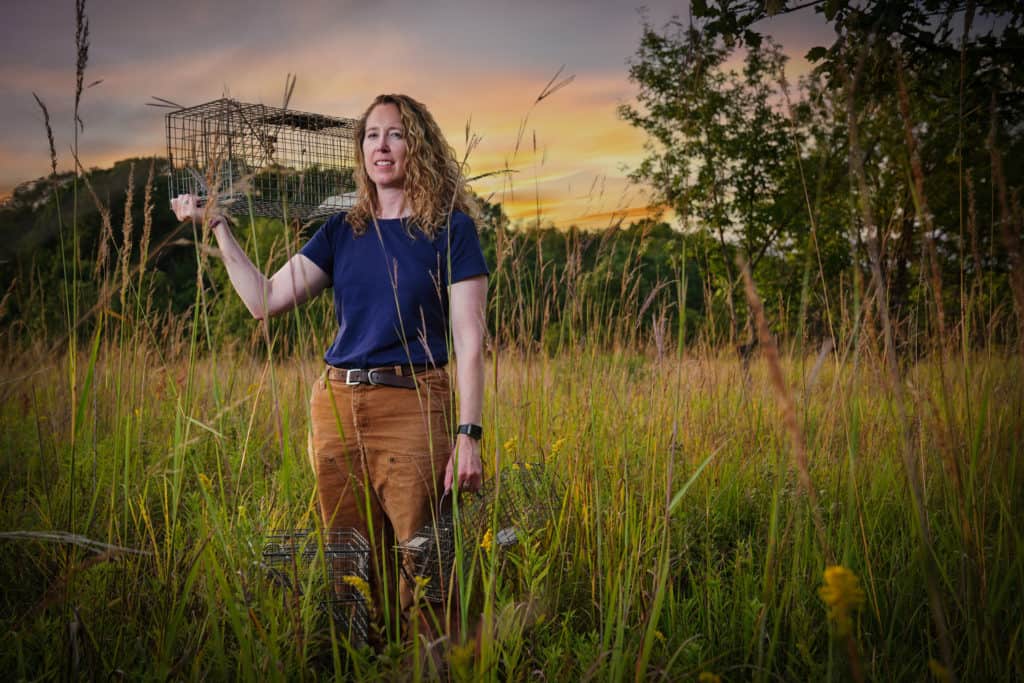
Flaherty won the 2021 TWS Excellence in Education Award. Credit: Courtesy Elizabeth Flaherty
In one of her popular courses, wildlife techniques, she brings student out into the field for a population study on eastern cottontail rabbits (Sylvilagus floridanus), a project started by her predecessor that has been going for more than 30 years now. Her class sets up the live-trapping grid, checks the traps daily for a week, individually marks the rabbits, collects biological information from the animals and vegetation data on the trapping grid, then calculates population abundances and evaluates habitat selection.
In her habitat management class, small groups develop management plans for areas tracked by an array of trail cameras. Over the course of the semester, the students collect habitat data to help them develop management recommendations for properties managed by Purdue. Each group focuses on a different species, whether it’s wild turkeys (Meleagris gallopavo), white-tailed deer (Odocoileus virginianus), coyotes (Canis latrans), red foxes (Vulpes vulpes), southern flying squirrels (Glaucomys volans), bats or beavers (Castor canadensis).
At the end of the semester, the groups present their ideas to the Purdue Forestry and Natural Resources property managers, who then incorporate some of those suggestions into official management plans. The trail camera photos are uploaded to the national SnapShot USA program, a collaborative effort to sample mammal populations with camera traps across the countries.
The exercise has already resulted in real scientific discoveries. One year, Flaherty said, students surveying bats with acoustic monitors detected Indiana bats (Myotis sodalist), which are considered endangered by the U.S. Fish and Wildlife Service.
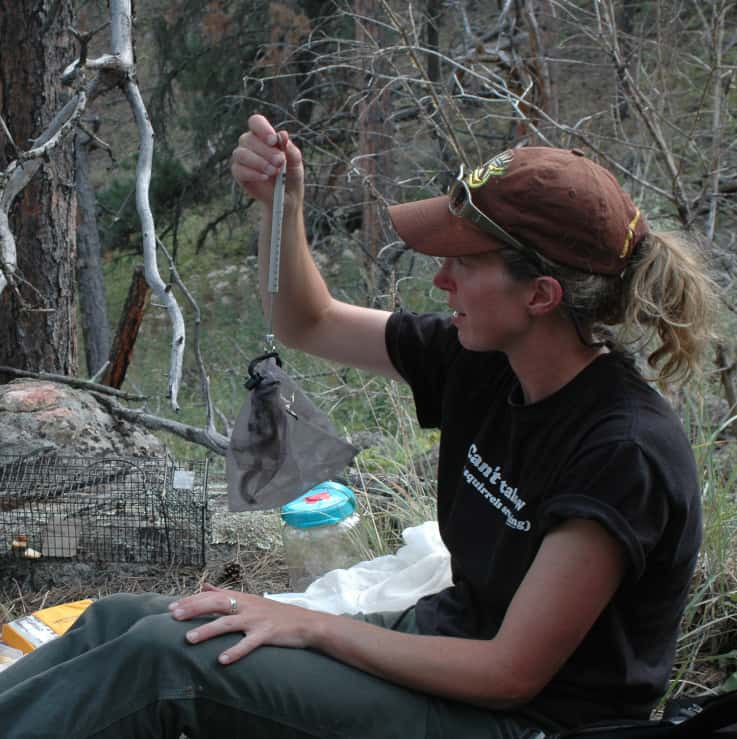
Flaherty weighs a chipmunk. Credit: Courtesy Elizabeth Flaherty
“There’s definitely a connection with some of what the students are doing in the class and the larger goals of our department,” Flaherty said.
Information the students collect from the trail cameras also helps the university set deer hunting limits on those properties every year.
Flaherty and her students also contribute to Squirrel-Net, a national program that collects squirrel behavior data from campuses across the country. Her students collect observation data at Purdue’s campus and upload it to the national database, which is open access and used by long-term research studies and instructors.
Other research she’s conducted with the help of students involves using stable isotope analysis on species like northern saw-whet owls (Aegolius acadicus), black bears (Ursus americanus), freshwater mussels and even chimpanzees (Pan troglodytes). In many cases, students earn publication credits from peer-reviewed studies published from the work they’ve done in her classes.
“During her graduate and postgraduate years, Liz became an excellent teacher with a unique combination of skills,” said TWS member Merav Ben-David, a professor at the University of Wyoming, in a letter of support for Flaherty’s nomination for the award. Ben-David was Flaherty’s PhD supervisor and later colleague in projects in Alaska. “Indeed, Liz is one of the best teachers I know and her students, past and present, admire and respect her.”
Click here to see the complete list of award recipients.
Header Image: Elizabeth Flaherty leads students in the field. Credit: Courtesy Elizabeth Flaherty






